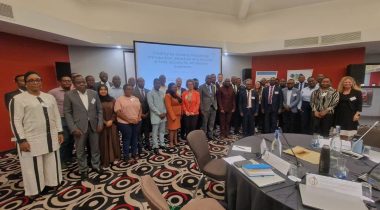
Tax Justice Network ■ Shareholders to vote on tax transparency as report raises serious questions for Canada’s largest alternative asset manager

We’re cross-posting this press release from our friends at the Centre for International Corporate Tax Accountability and Research (CICTAR) ahead of another shareholder vote on financial transparency on June 9th 2023, a trend we’re happy to see. The complex structures, through multiple financial secrecy jurisdictions, explain just why investors should be so concerned – and why we all need major companies to be required to publish their country by country reporting data… Here’s a webinar on the investor case for tax transparency at Brookfield.
London, 6 June 2023. Ahead of a shareholder vote on financial transparency, a new report from the Centre for International Corporate Tax Accountability and Research (CICTAR) reveals how Brookfield, owner of London’s Canary Wharf and New York’s Manhattan West, pays consistently low rates of tax and exploits global tax havens and loopholes.
Through complex corporate structures, with an exceptional reliance on Bermuda, Brookfield manages over $800 billion in global assets. Related party debt payments and other artificial transactions may substantially reduce taxable income where profits are earned. Brookfield’s aggressive tax avoidance schemes appear to deprive governments and communities of much-needed revenue for essential public services, including health and education.
This contrasts with Brookfield’s claim that sustainability is “fundamental to our business and how we create value”. Brookfield’s tax practices and its impact on local communities are anything but sustainable. The global giant provides the bare minimum reporting on tax and its shareholders and fund investors are left in the dark.
The report’s case studies – from the United Kingdom, Australia, Colombia, and Brazil – highlight potential risks for investors, providing a strong case for shareholders to support greater tax transparency through adherence to the Global Reporting initiative (GRI) tax standard as required in the shareholder resolution.
Jason Ward, CICTAR’s Principal Analyst: “Brookfield’s claims of being a responsible investor and advancing a sustainable economy are in serious doubt. Extracting profits from privatised public infrastructure and aggressively denying governments of funding for health and education is by no means sustainable. If Brookfield’s global profits are artificially inflated by exploiting loopholes, investors are placing a risky bet. By voting for Brookfield to implement the GRI tax standard, investors can shed light on global operations and potential risks. If the company is operating sustainably and responsibly, then Brookfield’s executives and management should have nothing to fear from greater transparency. Australia’s forthcoming legislation is expected to require Brookfield and other multinationals to publicly report on a country-by-country basis, beginning in July.”
Brookfield is one of the world’s largest investment managers, specialising in direct ownership of assets and operating companies around the world, across a range of diverse sectors, industries, and asset classes, including private equity and real estate. Much of Brookfield’s capital is workers’ deferred income invested by global public pension funds. Brookfield’s investments and practices have direct impacts on hundreds of millions of people around the world.
-ENDS-
For more information contact for detail about the research and report please contact Jason Ward, Principal Analyst at [email protected] +61 (0)488190457 or Patrick Orr at [email protected] +44 (0)7443496583
Notes to editors: The Centre for International Corporate Accountability and Research, CICTAR, was formed by a group of unions and civil society organisations that believe workers and communities need more and better information about the tax arrangements of multinational corporations. CICTAR provides a centralised resource for information and analysis on the practical effects of corporate tax policy and practices.
Case Study – UK, Canary Wharf
In 2022, the UK was Brookfield’s largest global market where it generated $25 billion in revenue. There is no publicly reported information on Brookfield’s total UK profits or taxes paid. However, if its ownership of London’s landmark Canary Wharf complex, along with the Qatar Investment Authority, is any indication, it is likely that very little tax was paid. Canary Wharf is owned via holding companies in Jersey and Bermuda and hundreds of subsidiaries, including 35 in Scotland and 27 in Jersey. In 2021, Canary Wharf, worth a whopping £8,087 million, had annual operating revenue of £419.7 million, but pre-tax profits were reduced to a mere £51.9 million and taxes paid were only £11.5 million.
Related articles
The elephant in the room of business & human rights
One-page policy briefs: ABC policy reforms and human rights in the UN tax convention

Bad Medicine: A Clear Prescription = tax transparency
Tax justice pays dividends – fair corporate taxation grows jobs, shrinks inequality

The Financial Secrecy Index, a cherished tool for policy research across the globe

Lessons from Australia: Let the sunshine in!
UN Submission: A Roadmap for Eradicating Poverty Beyond Growth

Strengthening Africa’s tax governance: reflections on the Lusaka country by country reporting workshop

Do it like a tax haven: deny 24,000 children an education to send 2 to school


